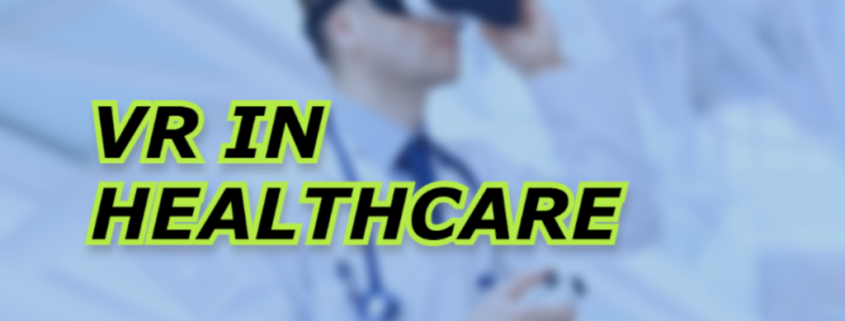Tech and Health: Challenges, AR in Surgery, VR in Medicine
Within the realm of healthcare, a revolutionary fusion is taking place at the intersection of virtual reality (VR) and medicine. This amalgamation holds tremendous potential to transform patient experiences and improve medical outcomes. Picture a world where patients undergoing chemotherapy can escape into immersive virtual environments, relieving their pain and anxiety by transporting their minds to serene beaches or enchanting forests.
Moreover, VR has proved its worth in mental health treatment by providing immersive therapy sessions for individuals grappling with anxiety disorders or phobias. By exposing patients to controlled virtual environments that replicate their fears, therapists can guide them through exposure therapy comfortably. Imagine the liberation for those crippled by fear who can now confront their anxieties within a safe and supportive virtual realm.
In conclusion, the integration of virtual reality into medicine opens up endless possibilities for enhancing patient well-being, medical education, and mental health treatment. This harmonious merger between technology and healthcare promises not only improved outcomes but also an uplifting optimism about the future of medicine’s transformative capabilities.
Augmented Reality in Surgical Procedures: Enhancing Precision and Safety
The integration of augmented reality (AR) into surgical procedures has opened up a realm of possibilities for surgeons, revolutionizing the way they approach complex operations. By overlaying digital information onto the surgeon’s field of view, AR provides real-time guidance, enhancing precision and safety in the operating room.
Picture this: a surgeon dons a pair of AR-enabled glasses and is instantly transported into a virtual world where anatomical structures can be visualized with unparalleled clarity. With every movement, intricate details are superimposed onto the patient’s body, allowing for precise identification of crucial structures like blood vessels or nerves. Surgeons can navigate through complex anatomical landscapes with confidence, reducing the risk of inadvertent damage and minimizing post-operative complications.
Moreover, AR technology enables seamless collaboration among surgical teams. Imagine a scenario where surgeons from different corners of the globe can join forces virtually to perform complex procedures together. Through shared AR experiences, expertise is pooled together as if distance were no barrier at all. This not only promotes knowledge exchange but also fosters a sense of camaraderie among healthcare professionals worldwide.
With augmented reality ushering in new frontiers in surgical precision and safety, we find ourselves at an exciting crossroads where technology complements human expertise to redefine what is possible within the realm of healthcare. As we stride confidently into this era of innovation, we can envision surgical outcomes being further optimized and patients benefitting from safer procedures that maximize their chances for swift recovery and restored well-being.
Challenges and Ethical Considerations in the Integration of Tech and Health
As we delve into the remarkable fusion of technology and health, it is essential to acknowledge the challenges and ethical considerations that arise alongside this promising synergy. One significant challenge lies in ensuring data privacy and security. With the increasing reliance on electronic health records, wearable devices, and connected devices, safeguarding personal health information becomes paramount to maintain trust in the healthcare system. Striking a delicate balance between innovation and protecting patient confidentiality calls for robust cybersecurity measures and stringent regulations.Furthermore, ethical dilemmas emerge when integrating technology into healthcare practices. For instance, artificial intelligence-powered algorithms that aid in diagnosis and treatment decisions may raise concerns about bias or lack of human oversight. It becomes imperative to carefully develop and validate these algorithms while ensuring they align with ethical principles such as fairness, transparency, and accountability.
Despite these challenges, embracing a forward-thinking mindset allows us to explore opportunities for positive change. By fostering collaboration between technologists, clinicians, policymakers, ethicists, and patients themselves—through open dialogue—we can collectively address these challenges while maximizing the potential benefits that technology brings to healthcare. The ultimate goal is to create a future where technology seamlessly integrates with healthcare practices while upholding ethical standards and empowering individuals on their journey towards better lives.
Conclusion
In conclusion, the remarkable synergy between technology and health holds immense potential to revolutionize our lives for the better. As we continue to witness the amalgamation of cutting-edge technologies with healthcare, a bright future filled with improved diagnosis, personalized treatments, and enhanced patient outcomes awaits us. With wearable devices empowering individuals to take charge of their own health, artificial intelligence aiding in accurate diagnoses, and virtual reality augmenting surgical procedures, the possibilities are truly awe-inspiring. Although challenges and ethical considerations persist on this transformative journey, it is crucial to embrace this fusion of tech and health with optimism as it paves the way for a world where innovative solutions pave the path towards holistic well-being and longevity.




Leave a Reply
Want to join the discussion?Feel free to contribute!